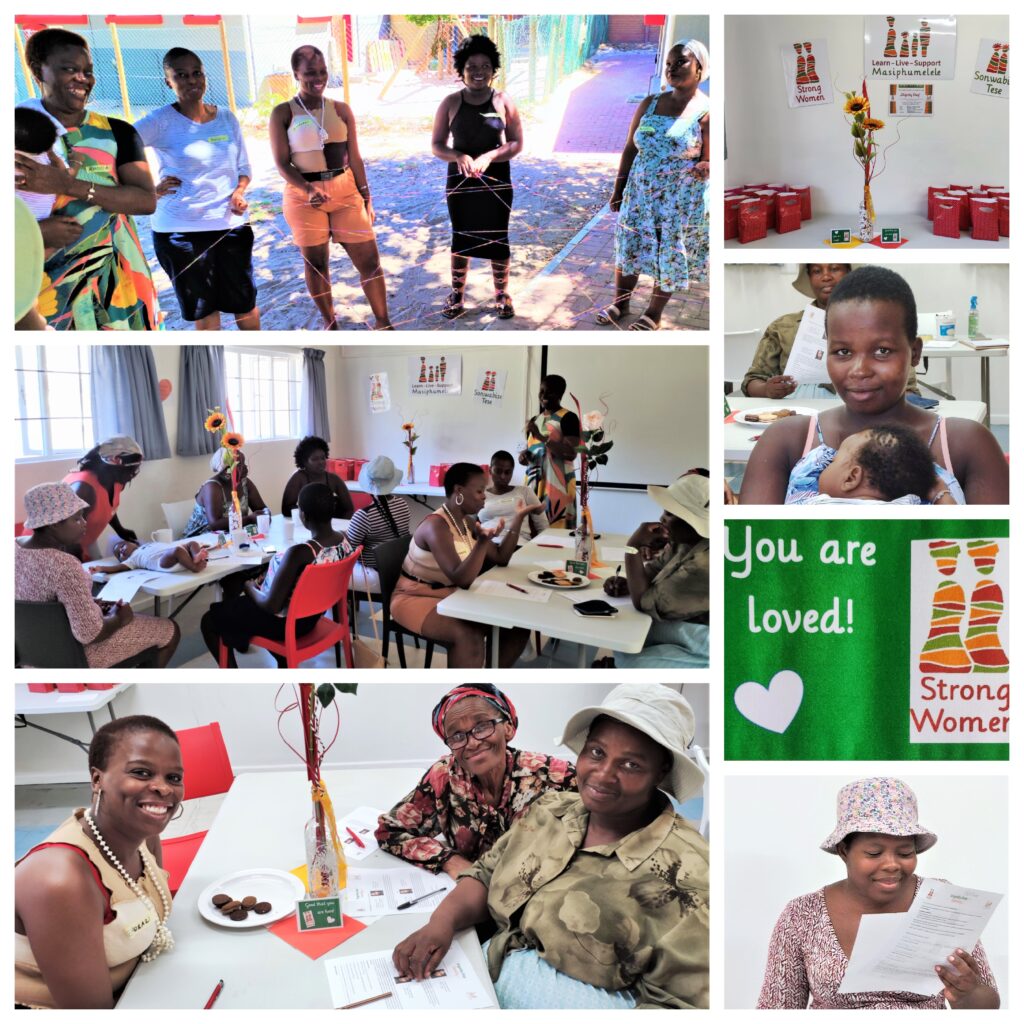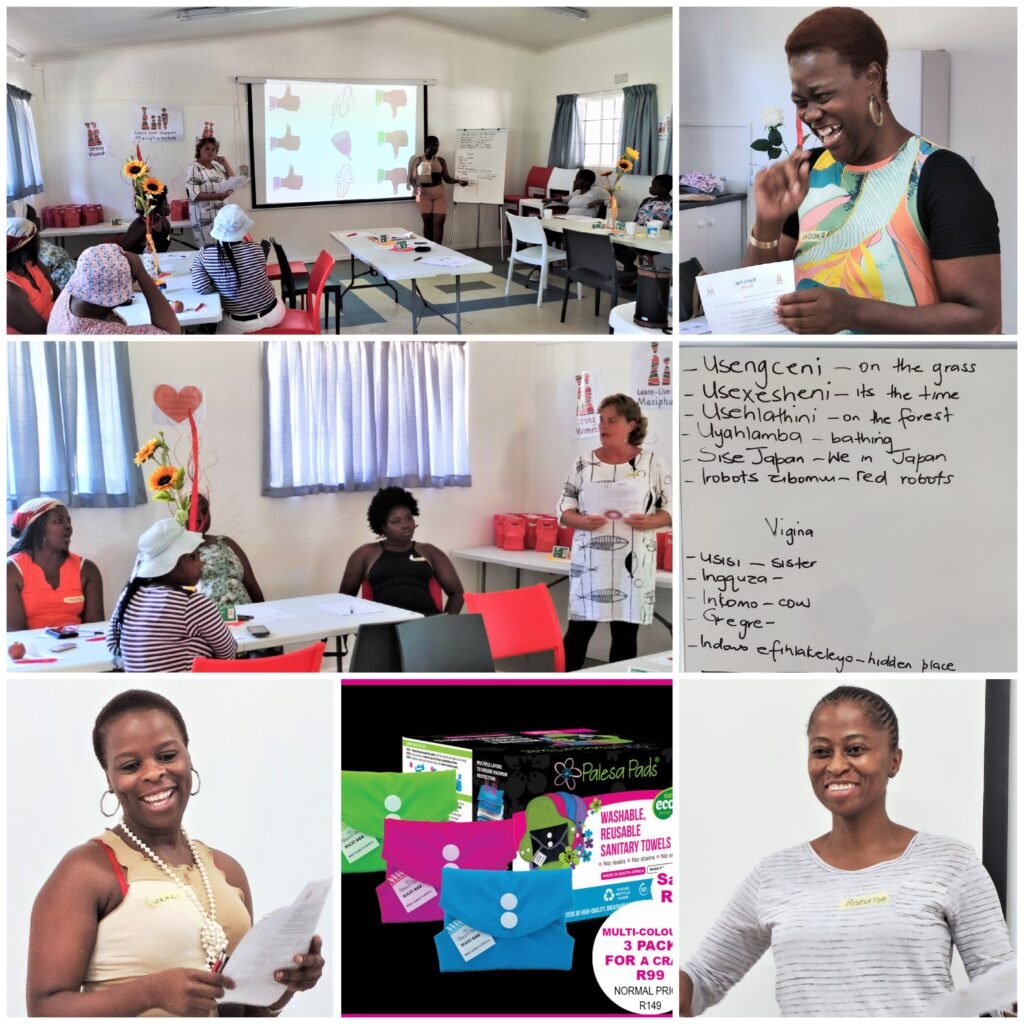
Our first Dignity Day focused on two issues that are important to us: Identity and Menstruation
Identity of the woman (in God) -naturally taking into account the cultural circumstances.
In the townships there is a 2-class society. Women often have no value and few rights. Accordingly, self-image and self-confidence are low. It is not common to talk about emotional matters and “private thoughts”.
“What is the meaning of my life? What can I achieve? Do I have a right to (life) dreams and self-realization? What are my talents and gifts? ” So many questions…
In the safe space and trusting atmosphere, women find the courage to voice questions and express doubts. We encourage them to search for their own identity. Knowing their strengths and weaknesses helps them to have more confidence.
It is important for the women to experience that they are not alone with what is bothering them. They experience how good it is to be with instead of against each other, to perceive each other, to build each other up, to have fun and to share difficult things.

Menstruation and Hygiene Products – still taboo topics.
Unfortunately, many adult women are not educated – neither about how their bodies work nor how pregnancies can be avoided. So it’s no wonder that their daughters also have many unanswered questions. In schools, sex education topics are covered, but the shame of asking questions (even more so since boys are present) is very high.
“What happens in our bodies during the monthly cycle? Why do we women have pain and fluctuations in emotions? What is ovulation and when can we get pregnant? What is normal and when should we see a doctor?”
These are just a few questions for which many women have no answers. We try to bring “light into the darkness” here.
An important aspect of education is the topic of monthly hygiene and its planning.
Often women cannot go to work and girls cannot go to school because there is no money for hygiene articles. Or things are used as a substitute that can cause inflammation, for example.
It is also important for us to convey that disposable pads and tampons are not made of cotton and pollute our nature and our environment for many years.
At the meetings, we introduce washable pads and menstrual cups, discuss advantages and disadvantages, and explain their use. At the end of the meeting, visitors receive free washable pads that can be used for years with good care.
 Deutsch
Deutsch English
English